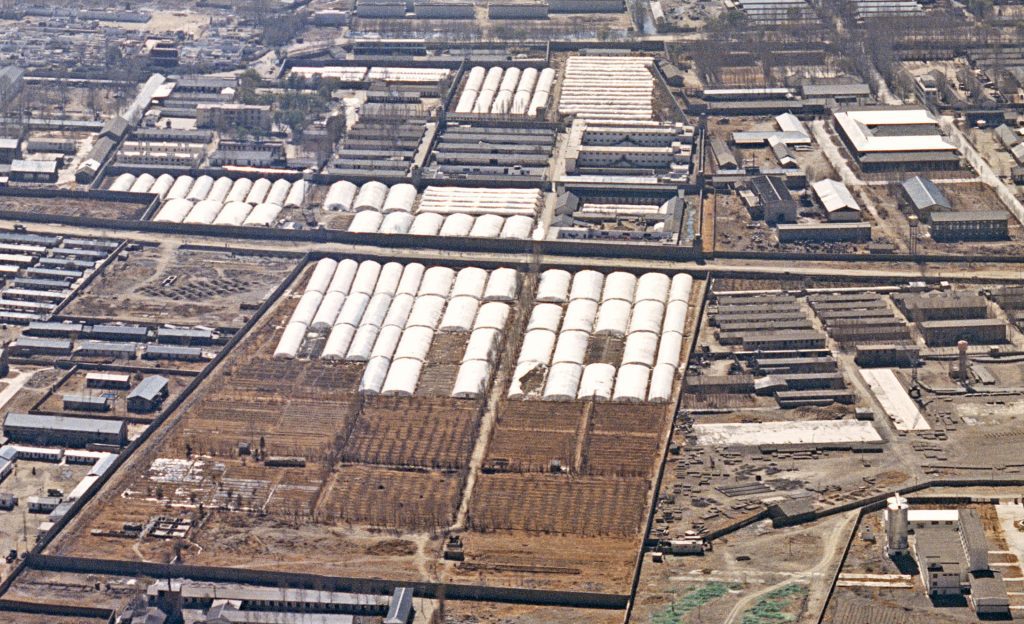Drapchi, also known as Lhasa Prison No. 1, officially opened as a prison in 1965. The site was originally a military garrison.
Its large intake of prisoners has consisted of monks and nuns who have been detained for their political beliefs.
Over the years it has gained a reputation for brutality. Many Tibetan survivors, who have managed to flee into exile, have described at length the poor conditions and torture tactics used at Drapchi. In 2001, the Tibetan Centre for Human Rights and Democracy documented this abuse in its report ‘Drapchi Prison: Tibet’s Most Dreaded Prison’.
Starvation and torture

Drapchi prison complex
A notable inmate Palden Gyatso, a Tibetan Buddhist monk, documented the torture he experienced at Drapchi alongside starvation and hard labour.
Ven Bagdro, another political prisoner who survived torture in Drapchi has recounted his experience: “They burned cigarettes on my face. They made me stand in ice for four hours, until my skin froze into the ice, and then they pushed me forward. They gave me electric shocks on my tongue. They told me they were going to kill my father and mother.”
Sonam Dorje, who spent 12 years in Drapchi, told Radio Free Asia: “We were handcuffed, then they would beat us with a rubber tube filled with sand… On average we are continuously detained in solitude for about 28 days to a month at a time.”
During his time at Drapchi a close associate of Dorje, Sonam Rinchen, was tortured to death.
A number of protests and hunger strikes have been recorded at the prison which has been met with harsh crackdowns by the security.
Lodoe Gyatso spent many years in Drapchi where he carried out a pro-independence demonstration, during which he shouted pro-Tibetan independence slogans and distributed handwritten leaflets to other prisoners. In the months following his demonstration, he was hung up by his thumbs and kept in such a small cell that he couldn’t even raise his head.
In 1993, 14 imprisoned Buddhist nuns secretly recorded protest songs and smuggled the tape out of Drapchi. After their release, a group of nuns came forward to highlight the torture and abuse they were subjected to at Drapchi. This included receiving severe punishments for refusing to sing Chinese songs or collapsing during heavy labour.

